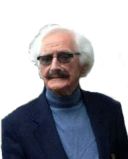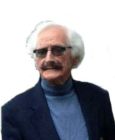Environment
A Time to Keep Silence
Quietude is an increasingly difficult state to attain nowadays.
Posted January 23, 2017
Quietude is an increasingly difficult state to attain nowadays. But then the contemporary environment hardly lends itself to achieving retreats from the daily round of ongoing time, from the ‘busy work’ and constant series of events that fill our days. There are so many things to do and places to go – so much mobility involved in getting around; so many channels of communication demanding attention to the constant run of events that constitute the news. And all satisfying a natural curiosity as to what is going on in the outside world, and thereby ensuring that we live more or less totally extroverted lives.
For what with smart-phones, television, internet, etc., one can avoid ever being ‘alone’ – and thus unlikely to experience those internal workings of the mind: those inwardly generated thoughts and feelings which question, and seek to comprehend, the true nature and purpose of one’s own existence in particular, and that of our planet and the cosmos in general.
Unless, of course, one is in the habit before falling asleep in bed, of re-living the day, pondering, and coming to realize the significance of certain events in helping to shape one’s outlook on life – both in bringing one to face aspects of one’s own psychological nature in terms of one’s mental and behavioral response to events; and in bringing into sharper focus the physical-factual reality of them.
But it seems to me that more people than you might think dislike being truly alone with themselves in this kind of way – are not psychologically ‘comfortable’ when left to their own contemplative resources. For it does take a certain degree of solitariness to effectively mull things over in the search for significance and purpose in the general run of events: a practice which brings one to discover more and more just who one actually is. Yet the ultimate purpose of such reflective pondering – after the fact – is to discover the essential nature of one's individuality.
The late great philosopher-psychologist Carl Gustav Jung, described such a duality of consciousness – awareness of the facts, and awareness of Self as the process of Individuation. And he believed that the basic purpose of all psychiatric-healing was to bring patients – through constant thought-provoking dialogue – to discover how this quiet, inner process of self-reflection brought them ultimately to face the Self, in all its unique psychical complexity. Once aware of their individual (and unique) mindset – whereby the positive and negative aspects of their character and personality were revealed – then the lifelong struggle to achieve a sense of ‘wholeness’ – of ‘charitableness’ and strong ‘moral fiber’ (as such ‘wholeness’ was once explained to me) – was seen as the way to attain some revelatory level of ‘Selfhood’. Individuation.
As the 17th Century English physician and writer Sir Thomas Browne put it, ‘Be able to be alone. Lose not the advantage of solitude, and the society of thyself.’
In other words, the concept of ‘Reality’ should embrace both our sensory, ego-led, factual life in the outside world, together with the inner and reflective mental life of the Mind.
As you most likely know by now, I walk Gabriel my dog twice a day, usually on mountain trails. And it is at such times that I become free to wander around in the Mind – become aware of feelings, ideas and intuitions concerning who, and possibly why, I am. And, in so doing, become aware of the Mystery – both of one’s own life-giving micro-existence, and the macro-existence of the Cosmos overall.
For it is generally in tranquil moments of quietude that such mini-revelations occur. The almost 24 hour dominating omnipresence of the computer, mobile phone, and television will ensure that those moments of personal insights revealing the significance or ‘truth’ underlying a particular ‘happening’; or which are revealed in one’s thoughts or ideas about life in general, when – as the poet Wordsworth put it – one is wandering ‘lonely as a cloud…’ have little chance of ‘getting through’.
Telephones to the ear when gazing out over the Grand Canyon… Computer tablets ‘on the go’ in homes, restaurants, lecture halls… and all diminishing the need to find the words…to express personal thoughts, feelings and ideas… which, as a result are less likely to be forthcoming. Because this most vital of brain activities, which depends upon the translation of sensory perceptions into language and the search and selection of the right words can itself be gradually atrophying.
I wonder what Marcus Aurelius, Roman Emperor and philosopher (121-180 A.D.) would think of today’s world? For he says all I have been trying discuss here in a few lines of his Meditations… almost a couple of thousand years ago.
Men seek out retreats for themselves in the country, by the seaside, on the mountains... But all this is unphilosophical to the last degree....when thou canst at a moment's notice retire into thyself.
Some commentator wrote recently that an increasing technology could mean ‘the end of the human species…’




